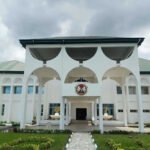The World Bank has announced its approval of a $70 million International Development Association (IDA) grant to Somalia to support the Somalia Water for Rural Resilience Project named ‘Barwaaqo’.
The fund, according to the bank, is aimed at developing resilient water, agriculture, and environmental services for rural communities in the country’s drylands.
It is understood that this project is coming at a critical time when Somalia is facing an unprecedented multi-season drought and worsening food insecurity.
SDG 11: Make cities and human settlements inclusive, safe, resilient and sustainable
The World Bank said the project will provide water to 500,000 people, representing approximately 15 percent of the rural population, who currently only have access to limited services and unimproved or surface water.
World Bank Country Manager for Somalia, Kristina Svensson, said the Barwaaqo project supports communities to build resilience and adapt to climate change by improving access to water resources in a dryland environment.
‘Increasing access to water will help improve human health and well-being, particularly in the face of the current drought’, she said.
‘Environmental challenges, exacerbated by climate change over the years, have contributed to degrading over a quarter of Somalia’s territory, and coupled with deforestation and loss of soil, rural livelihoods are under threat.
‘These challenges, along with droughts, also cause pastoralists to lose their livestock (their main source of wealth and income) while farmers and agro-pastoralists lose their harvest (which is their main source of food)’.
Data from United Nations Environment Programme (UNEP) shows that land degradation is a key environmental issue in Somalia, closely linked to desertification, drought and unsustainable livestock and agricultural practices.
It also reveals that food insecurity and livelihoods, possible hazardous waste, lack of marine and coastal management, and the mitigation and management of natural disasters are other environmental concerns.
World Bank Senior Water Supply and Sanitation Specialist, Chantal Richey, said the project will integrate climate adaptation and mitigation measures which will support the strengthening of natural resources management in order to increase the sustainability of investments.
Source: World Bank
Photo source: World Bank






